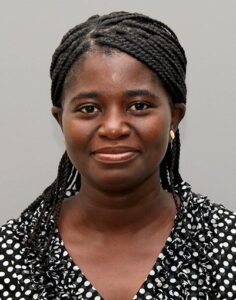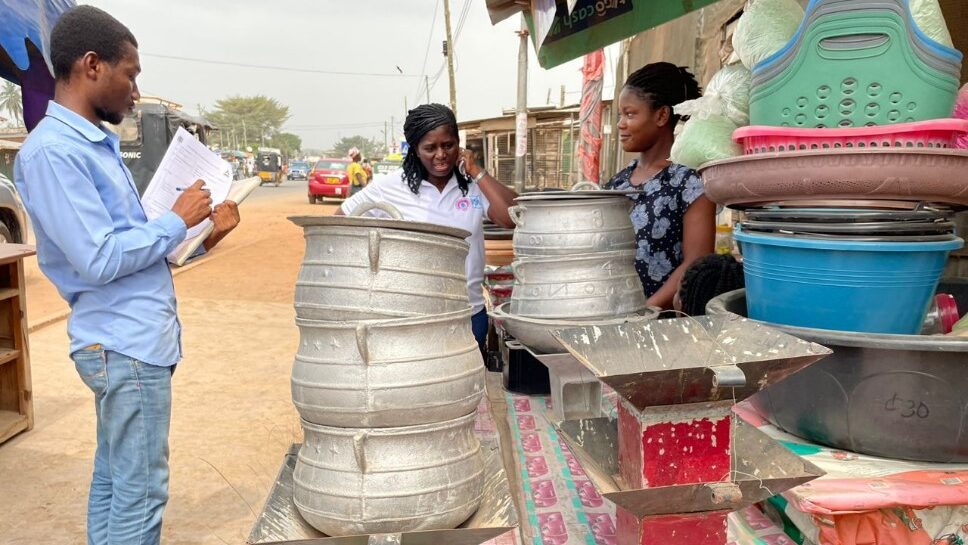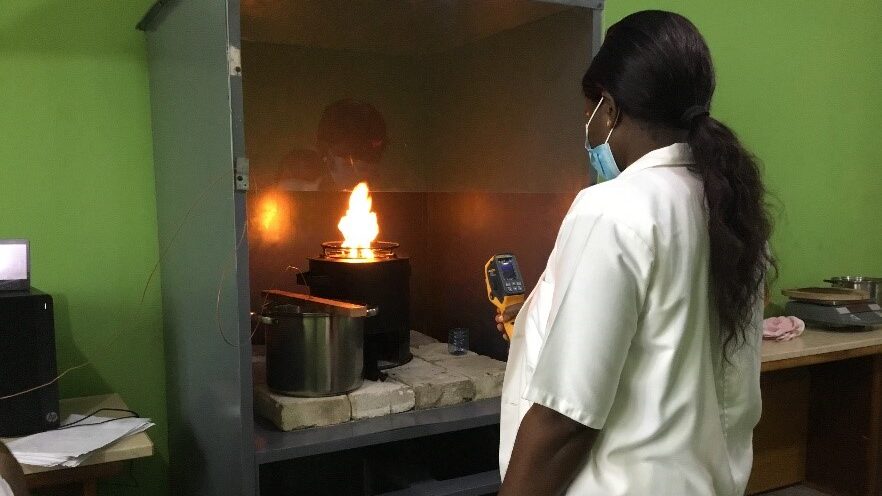A Visionary in Ghana’s Sustainable Cooking Landscape

Gloria Boafo-Mensah is a Research Scientist working with the Council for Scientific and Industrial Research at the Institute of
Industrial Research (CSIR-IIR). She holds a Master of Science in physics and is pursuing a Ph.D. in sustainable energy technologies. She heads the Metrology Division and doubles as the Manager of Ghana’s Regional Testing and Knowledge Center, which involves testing and researching clean cooking fuels in the lab.
The Clean Cooking Alliance (CCA) spoke to Boafo-Mensah about her work as a clean cooking researcher and the impact she has had on the clean cooking sector in Ghana.
This story is part of a series showcasing women leaders in the clean cooking sector.
Gloria Boafo-Mensah entered the clean cooking sector unexpectedly. After completing her master’s degree in physics, Boafo-Mensah worked as a Research Scientist at CSIR-IIR in the Energy Technologies and Metrology Division, working on a range of clean cooking projects such as establishing values for thermal efficiency in charcoal stoves and developing regional standards for biomass cookstoves. “I was hired for a clean cooking project, and I have not looked back since,” she said.

At CSIR-IIR, Boafo-Mensah was assigned to work on an ongoing project in Ghana’s Upper East Region, the rural, northeast corner of country. Here, most households still cooked over a three-stone fire, which is a traditional method that burns biomass inefficiently, is smoky, and therefore poses many health risks. The project’s field technicians trained beneficiaries – mostly women – to construct their own improved biomass cookstoves, complete with a chimney. “The joy of these women when they constructed and used improved stoves was overwhelming,” Boafo-Mensah recalled. This experience taught Boafo-Mensah firsthand about the many issues that cooking with traditional stoves and fuels causes for women and children and how much improved cookstoves can change their lives.
Boafo-Mensah’s fieldwork inspired her commitment to working in Ghana’s clean cooking sector. “It is quite fulfilling to use my knowledge of materials, combustion, and heat transfer, and the support I have from manufacturers, to enhance the performance of cookstoves or fuels,” she said.
[ Read past entries in CCA’s Women Energizing Change Series. ]
Boafo-Mensah believes that cooking energy interventions should be based on understanding a target group’s diverse household cooking energy needs. “Designs and strategies for adopting and sustaining the use of improved biomass cookstoves must be location-specific, taking into account the cooking practices and conditions prevailing in a particular geographic area,” she explains. “These interventions should meet local needs while delivering meaningful health, environmental, and socio-cultural benefits, as well as meeting national and global benchmarks of thermal efficiency, emissions, safety, and durability.”
Technological advancements in clean cooking, Boafo-Mensah noted, have been significant. “From rudimentary ‘water boiling test’ protocols to the state-of-the-art Laboratory Emissions Monitoring System, the sector has come a long way,” she remarked. She’s also delighted to see a different type of advancement: more women joining the field. “The few women in the sector are serving as role models, encouraging others to step forward,” Boafo-Mensah said.

Throughout her career, Boafo-Mensah’s proudest achievement is the tangible adoption of clean cooking solutions in communities in Ghana. “Seeing these improved stoves benefiting the lives of individuals has been truly fulfilling,” she noted. Under her guidance, the Regional Testing and Knowledge Center played a pivotal role in establishing a regulatory instrument that enforces the star rating of improved biomass cookstoves based on their thermal efficiency, thereby promoting the efficient use of improved biomass cookstoves in Ghana.
However, the road ahead is not without obstacles. “The biggest challenges are political will, adequate funding, and meeting end-user needs,” she pointed out. For a brighter future in clean cooking, Boafo-Mensah believes in starting with what’s available and gradually building the infrastructure for cleaner solutions like gas and electricity.
To women and girls considering careers in engineering and clean cooking, Boafo-Mensah’s advice is heartfelt. “Equip yourself with knowledge in science and engineering. There are various areas in clean cooking, and us women are best equipped to identify gaps and develop solutions,” she advised.
